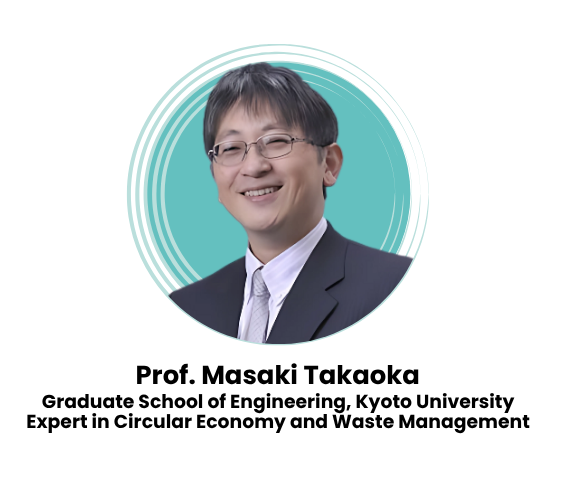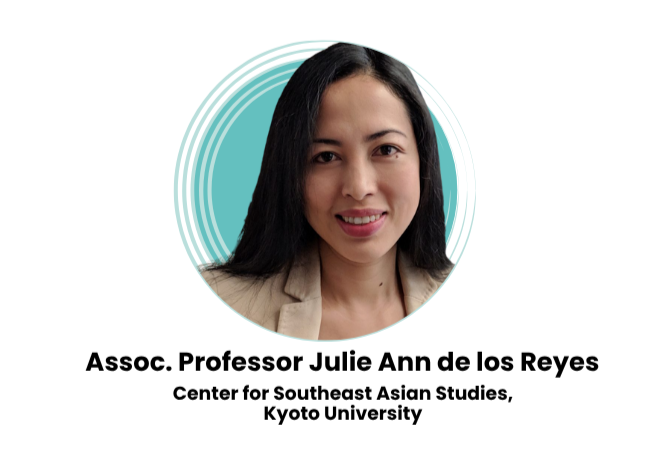
Prof. Benjamin McLellan is a Professor at the Graduate School of Energy Science, Kyoto University, Japan. He holds a Ph.D. in Chemical Engineering from the University of Queensland in 2007, worked as a post-doc and research fellow at the Sustainable Minerals Institute (UQ) until 2010, and then moved to Kyoto University`s Graduate School of Energy Science.
Prof. McLellan’s research focuses on sustainability within the energy and resources sectors, with a particular interest in emerging resources and technologies. Recently, he has been involved in research on the topic of just transitions and stakeholder engagement for globally preferable solutions to energy and resources challenges. He has specifically been involved in research into the technical, environmental, economic and social implications of deep-sea mining since 2014. This research has focused on identifying the relative impacts of DSM as compared to terrestrial mining. This research links to broader examination of the use of critical minerals (which can be sourced from the deep ocean) for clean energy technologies. He also examines other aspects of the energy-X-nexus (X being any other sector, e.g. water, minerals, land). Prof. McLellanhas a strong focus on the support of early career researchers, open access science, and on international collaboration.
Notable publications:
McLellan B.C., Williams R.P., Lay J., Van Riessen A., Corder G.D.”. Costs and carbon emissions for geopolymer pastes in comparison to ordinary portland cement. Journal of Cleaner Production. 19(9- 10), 1080-1090 (2011) http://dx.doi.org/10.1016/j.jclepro.2011.02.010
Chen, S., Liu, J., Zhang, Q., Teng, F., & McLellan, B. C. (2022). A critical review on deployment planning and risk analysis of carbon capture, utilization, and storage (CCUS) toward carbon neutrality. Renewable and Sustainable Energy Reviews, 167, 112537. https://doi.org/10.1016/j.rser.2022.112537
Watari, T., McLellan, B. C., Giurco, D., Dominish, E., Yamasue, E., & Nansai, K. (2019). Total material requirements for the global energy transition to 2050: A focus on transport and electricity. Resources, Conservation and Recycling, 148, 91-103. https://doi.org/10.1016/j.resconrec.2019.05.015

Prof. Suharman Hamzah is a Professor at the Faculty of Engineering, Hasanuddin University, Makassar, Indonesia. He graduated with a Bachelor of Civil Engineering from Hasanuddin University in 2001, then took a Master’s degree at the Sepuluh Nopember Institute of Technology in 2004, and holds a Ph.D. in Engineering from Kyoto University in 2012.
Prof. Suharman is an expert in construction management. His research consistently demonstrates a commitment to sustainable practices, exploring topics such as mid-long term maintenance policies for infrastructure, the role of Public-Private Partnerships (PPP) in sustainable port development, and the integration of environmental and sustainability factors in the development of special economic zones. Beyond the broader management strategies, his expertise also extends to more technical aspects, including the numerical analysis of materials and structural performance, indicating a comprehensive understanding of the construction lifecycle from planning to execution and long-term maintenance.
Notable publications:
Hamzah, S., & Kobayashi, K. (2012). Utilizing Mid-long Term Maintenance Management Policy for Sustainable Maintenance of Infrastructure Facilities. Procedia Environmental Sciences, 17, 478-484. https://doi.org/10.1016/j.proenv.2013.02.062
Hamzah, S., Adisasmita, S. A., Harianto, T., & Pallu, M. S. (2013). Private involvement in sustainable management of Indonesian ports: Need and strategy with PPP scheme. Procedia Environmental Sciences, 20, 187–196.
Hamzah, S., Pangemanan, D., & Aprianti, E. (2023). The Environmental and Sustainable Factors on the Special Economic Zones Development. Civil Engineering Journal, 9(2), 334–342. https://doi.org/10.28991/CEJ-2023-09-02-06

Prof. Takaoka is a professor at Graduate School of Engineering, Department of Urban and Environmental Engineering. He began as an Assistant Professor in the Faculty of Engineering in April 1993, transitioning to the Graduate School of Engineering in 1996. He then served as an Associate Professor in the Graduate School of Engineering from March 2002 to January 2011. Since January 2011, he has been a Professor in the Graduate School of Engineering at Kyoto University, and currently serves as a Guest Professor at Kochi University since July 2023.
Prof. Takaoka aims to contribute to the realization of a sustainable society by understanding and controlling the mechanisms of phenomena that occur in various waste treatment, disposal, and recycling processes. He strives to develop more efficient technologies based on these mechanisms and then apply and evaluate these new systems in real-world scenarios.
Notable publications:
Mizuno, T., Miyakawa, T., Hoshi, T. et al. Development of excess electricity-generating sludge incineration system utilizing step grate stoker furnace. J Mater Cycles Waste Manag (2025). https://doi.org/10.1007/s10163-025-02304-6.
Nomura, M., Oshita, K. & Takaoka, M. Influence of hydrogen supply factors on in-situ biological biogas upgrading in thermophilic anaerobic digestion of sewage sludge. J Mater Cycles Waste Manag (2025). https://doi.org/10.1007/s10163-025-02289-2.
Shiraki, T., Okumura, S., Sharma, A. et al. Chemical looping gasification of sewage sludge using a two-stage bubbling fluidized bed reactor. J Mater Cycles Waste Manag 27, 2637–2651(2025). https://doi.org/10.1007/s10163-025-02266-9.

Mr. Leonardo currently serves as Deputy for Food, Natural Resources and Environment at the Ministry of National Development Planning/Bappenas of the Republic of Indonesia. Prior to this role, he held the position of Expert Staff to the Minister for the Development of Leading Sectors and Infrastructure. With extensive experience in strategic planning and policy formulation, Mr. Leonardo has played a key role in shaping Indonesia’s national development agenda, particularly in the areas of environmental sustainability, natural resource management, and infrastructure development.
Notable publications:
Yasin, M. Z., Harianto, S. K., A. Teguh Sambodo, L. A., Yustiningsih, F., & Esquivias, M. A. (2024). Gender diversity, foreign direct investment spillovers, and productivity: Unraveling the role of female workers in Indonesia. Business Strategy & Development, 7(1), e338. https://doi.org/10.1002/bsd2.338
Blue Economy Development Framework for Indonesia’s Economic Transformation November 2021 Publisher: Ministry of National Development Planning/National Development Planning Agency (BAPPENAS)ISBN: 978-623-98276-1-8.
Sambodo, L. A. A. T., & Nuthall, P. L. (2010). A Behavioural Approach to Understanding Semi- subsistence Farmers’ Technology Adoption Decisions: The Case of Improved Paddy-Prawn System in Indonesia. The Journal of Agricultural Education and Extension, 16(2),111–129. https://doi.org/10.1080/13892241003651373.

Julie de los Reyes is an associate professor at the Center for Southeast Asian Studies and Hakubi Center for Advanced Research at Kyoto University. She obtained her PhD in Geography from the University of Manchester in the UK. Julie’s research is concerned with the dynamics of energy transition in East and Southeast Asia, focusing in particular on coal investments (and disinvestments), emerging hydrogen supply chains and the role of development finance institutions in energy transition.
Her previous work examined financialization and (its impacts on) the geography of mining investments in the global gold mining industry, which was awarded 2018 Best PhD Thesis in Economic Geography by the Royal Geographical Society – Institute of British Geographers (Economic Geography Research Group) in the UK. She has been a recipient of prestigious grants and fellowship awards, including the EU’s Marie Skłodowska-Curie Fellowship, Erasmus Mundus Scholarship, and the Japan Society for the Promotion of Science’s Grant-in-Aid for early career scientists. Her articles have been published in top academic journals such as Geoforum, Environment and Planning E: Nature and Space, and the Journal of Peasant Studies.
Notable publications:
De los Reyes, J. A. (2017). Mining shareholder value: Institutional shareholders, transnational corporations and the geography of gold mining. Geoforum, 84, 251-264. https://doi.org/10.1016/j.geoforum.2016.12.004
Banoub, D., Bridge, G., Bustos, B., Ertör, I., González-Hidalgo, M., & de los Reyes, J. A. (2020). Industrial dynamics on the commodity frontier: Managing time, space and form in mining, tree plantations and intensive aquaculture. Environment and Planning E: Nature and Space, 4(4), 1533-1559. https://doi.org/10.1177/2514848620963362 (Original work published 2021)
De los Reyes, J. and Sandwell, K., 2018. Flex crops: a primer. Transnational Institute (TNI) Agrarian and Environmental Justice Program. Think piece series on flex crops & commodities, (6).
